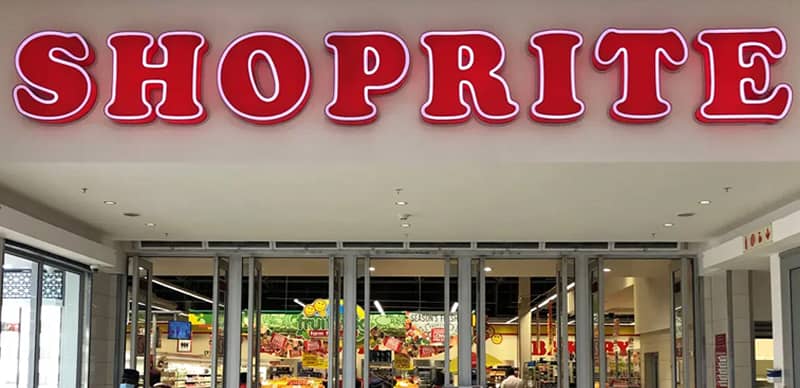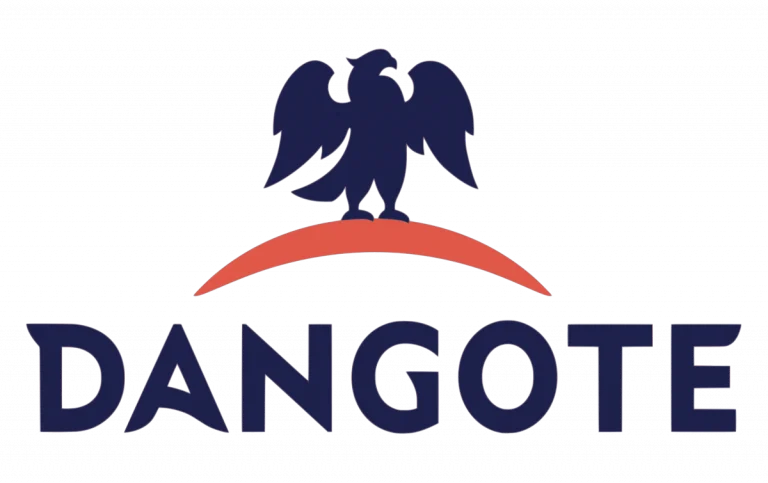Business
JUST IN: Shoprite Announces Intention To Close Abuja Branch

ShopRite Mall has announced its intention to cease operation in one of its Abuja branches from June 30, 2024.
The branch is situated at Novare Central Mall in Wuse Zone 5.
This was contained in a circular signed by the Chief Executive Officer, Dr Folakemi Fadahunsi, on behalf of the retail supermarket and obtained by our correspondent on Monday.
A staff at the store who pleaded anonymity also confirmed the report, saying “Yes, it is true, we just heard it here too.”
The popular mall attributed its decision to a thorough evaluation of the store’s financial situation and the current business climate.
It additionally notified vendors that their services would no longer be needed at the store.
READ ALSO: JUST IN: Abiodun Emerges Chairman Of Southern Governors Forum
The circular read, “We regret to inform you that as of June 30, 2024, Retail Supermarkets Nigeria Limited will be closing its Wuse Store located in Novare Wuse Central Mall, Abuja. This decision has been made after a thorough evaluation of the store’s financial situation and the current business climate. We believe this is the best course of action for our organization’s long-term growth.
“Effective June 30, 2024, our company will no longer operate in Wuse, Abuja, and we will no longer require your services for the Novare Wuse Central Mall Store. Please note that all existing service contracts will also terminate for the store.”
The circular added the company would be reviewing its accounting records in the next 60 days to settle outstanding balances.
“If your services are specifically tied to the Novare Wuse Central Mall Store and if there is an outstanding balance between our companies, we will carefully review our accounting records over the next 60 days (about 2 months). We will then promptly contact you to confirm the amount owed and discuss a suitable payment schedule.
READ ALSO: [JUST IN] Cholera Outbreak: Lagos Records 29 Deaths, 579 Suspected Cases
“We would like to express our gratitude for your past business. It has been a pleasure working with you and your team. If you have any questions or concerns, or if there is anything we can do to assist you during this challenging transition, please do not hesitate to reach out to us”, it added.
Multiple multinationals have left Nigeria by either scaling down operations, transferring ownership or selling their stakes, the most recent being the sale of beverage company Diageo’s 58.02 per cent shareholding in Guinness Nigeria to Tolaram Group on June 11, 2024.
The exodus of multinationals from the Nigerian economy has cost the country a N94tn loss of output in five years, according to an economist and former Director of Research and Advocacy at the Lagos Chamber of Commerce and Industry in Nigeria, Dr Vincent Nwani.
According to the analyst, for the first year, over 10 companies shut down operations in 2020, most notably Standard Biscuits Nigeria Ltd, NASCO Fiber Product Ltd, Union Trading Company Nigeria PLC, and Deli Foods Nigeria Ltd.
READ ALSO: BREAKING: Police Arrest Killers Of Army General In Abuja
In 2021, he stated that more than 20 companies exited, including Tower Aluminium Nigeria PLC, Framan Industries Ltd, Stone Industries Ltd, Mufex Nigeria Company Ltd, and Surest Foam Ltd.
He stated that in 2022, over 15 known brands left Nigeria, including Universal Rubber Company Ltd, Mother’s Pride Ventures Ltd, Errand Products Nigeria Ltd, and Gorgeous Metal Makers Ltd.
More than 10 major companies left in 2023, notably Unilever Nigeria PLC, Procter & Gamble Nigeria, GlaxoSmithKline Consumer Nigeria Ltd, ShopRite Nigeria, Sanofi-Aventis Nigeria Ltd, Equinox Nigeria, and Bolt Food & Jumia Food Nigeria.
In the first six months of this year, five listed major companies had left Nigeria, including Microsoft Nigeria, Total Energies Nigeria (affected by its divestment), PZ Cussons Nigeria PLC, Kimberly-Clerk Nigeria, and Diageo PLC.
Business
NNPCL Announces Restoration Of Escravos-Lagos Pipeline

The Nigerian National Petroleum Company Limited (NNPCL) has announced the complete restoration of the Escravos-Lagos Pipeline System (ELPS) in Warri, Delta State, following the recent explosion on the asset.
The chief corporate communications officer (CCCO) of the nation’s oil company, Andy Odeh, in a statement, said that the pipeline is fully operational, reiterating the company’s resilience and commitment to energy security.
“NNPC Limited is pleased to announce the successful restoration of the Escravos-Lagos Pipeline System (ELPS) in Warri, Delta State.
READ ALSO:Fuel Price Cut: NNPCL GCEO Ojulari Reveals Biggest Beneficiaries
“Following the unexpected explosion on December 10, 2025, we immediately activated our emergency response, deployed coordinated containment measures, and worked tirelessly with multidisciplinary teams to ensure the damaged section was repaired, pressure-tested, and safely recommissioned.
“Today, the pipeline is fully operational, reaffirming our resilience and commitment to energy security. This achievement was made possible through the unwavering support of our host communities, the guidance of regulators, the vigilance of security agencies, and the dedication of our partners and staff.
“Together, we turned a challenging moment into a success story, restoring operations in record time while upholding the highest standards of safety and environmental stewardship.
“As we move forward, NNPC Limited remains steadfast in its pledge to protect our environment, safeguard our communities, and maintain the integrity and reliability of our assets. Thank you for your trust as we continue to power progress for Nigeria and beyond,” the statement read.
Business
Dangote Unveils 10-day Credit Facility For Petrol Station Owners

The Dangote Group has announced a 10-day credit facility backed by a bank guarantee for petrol station owners and dealers, alongside free direct delivery and other incentives, as part of a new supply arrangement.
The company disclosed this in a statement posted on its official X handle on Tuesday, inviting petrol station operators across the country to register to benefit from the offer.
According to the statement, participating dealers will enjoy “a 10-day credit facility backed by a bank guarantee,” with a minimum order requirement of 5,000 litres.
“Our free direct delivery service will commence soon,” the group said, adding that the offer is open to “all petrol station owners and dealers.”
READ ALSO:Dangote Sugar Announces South New CEO
The Dangote Group further called on operators to register their stations to access the supply arrangement.
“Register your petrol stations today to benefit from our competitive gantry price,” the statement read.
The company also disclosed that petrol supplied under the arrangement will be sold at a gantry price of ₦699 per litre.
For enquiries, the group provided the following contact numbers: 0802-347-0470, 0809-324-7070, 0809-324-7071 and 0203.
READ ALSO:Dangote Refinery Dispute: PENGASSAN Suspends Strike After FG Intervention
The announcement follows a recent petrol price adjustment by the Dangote Petroleum Refinery.
The PUNCH earlier reported that the refinery reduced its ex-depot petrol price from ₦828 to ₦699 per litre, representing a ₦129 cut or a 15.58 per cent reduction.
An official of the refinery, who spoke to PUNCH Online on condition of anonymity, confirmed the adjustment, saying, “The refinery has reduced petrol gantry price to ₦699 per litre.”
The new price reportedly took effect on December 11, 2025, marking the 20th petrol price adjustment announced by the refinery this year.
Business
JUST IN: Otedola Sells Shares In Geregu Power For N1trn

Billionaire businessman, Femi Otedola, has sold his majority stake in Geregu Power Plc for N1.088 trillion in a deal financed by a consortium of banks led by Zenith Bank Plc.
The Nigerian Exchange, NGX, made this announcement on Monday.
Otedola’s Amperion Power Distribution Company Ltd reportedly held nearly 80 percent of the power generating company.
READ ALSO:N200b Agric Credit Dispute: Appeal Court Slams NAIC, Upholds First Bank Victory
With this new development, Otedola, Chairman of First Holdco Ltd, parent company of First Bank of Nigeria Plc, will reportedly now concentrate on expanding his interest in the Nigerian banking sector, although he still retains some shares in Geregu.
Otedola is said to currently own 17.01 percent of First Bank — its single largest shareholder since the bank was established in 1894.

 Headline8 hours ago
Headline8 hours agoPROPHECY: Primate Ayodele Reveals Trump’s Plot Against Tinubu

 News8 hours ago
News8 hours agoWhat I Saw After A Lady Undressed Herself — Pastor Adeboye

 Metro10 hours ago
Metro10 hours agoJoint Task Force Kills 23 Bandits Fleeing Kano After Attacks

 Politics10 hours ago
Politics10 hours agoWhy Kano Governor Postponed Formal Defection To APC

 Metro7 hours ago
Metro7 hours agoArmed Robbers Shot PoS Operator To Death In Edo

 Metro8 hours ago
Metro8 hours agoGunmen Demand N200m Ransom For Kidnapped Brothers In Edo

 Politics8 hours ago
Politics8 hours ago2027: Rivers APC Pledges To Follow Wike’s Instructions

 News8 hours ago
News8 hours agoReps Release Four Tax Acts For Public Records

 News10 hours ago
News10 hours agoNiMet Forecasts Three-day Dust Haze, Sunshine

 News8 hours ago
News8 hours agoMissing N128bn: SERAP Demands Probe Into Power Ministry, NBET Expenditures
































